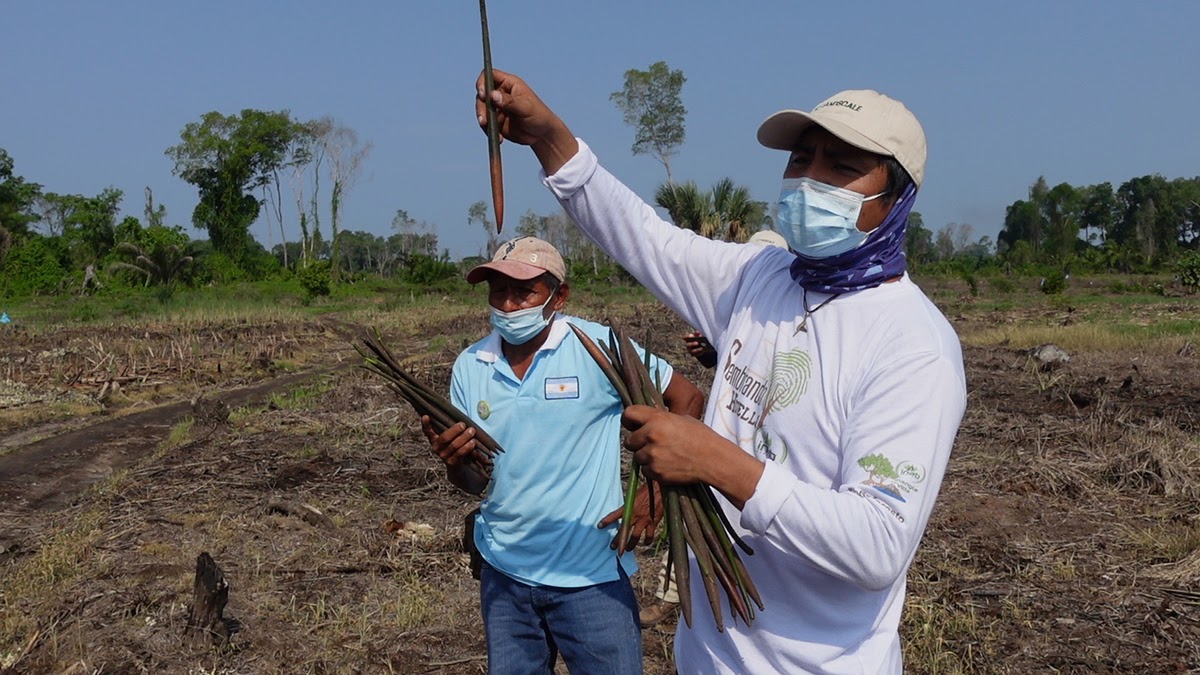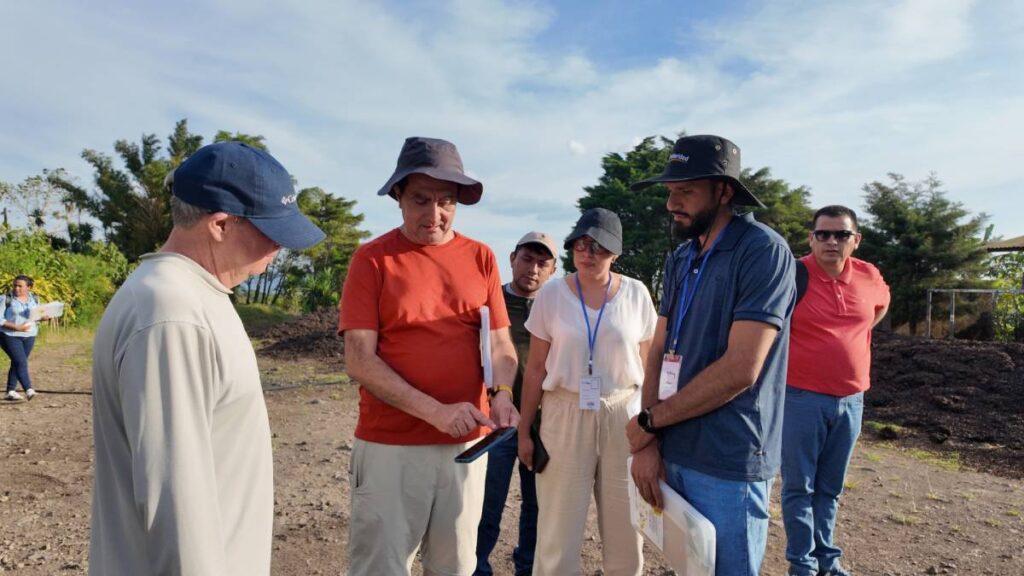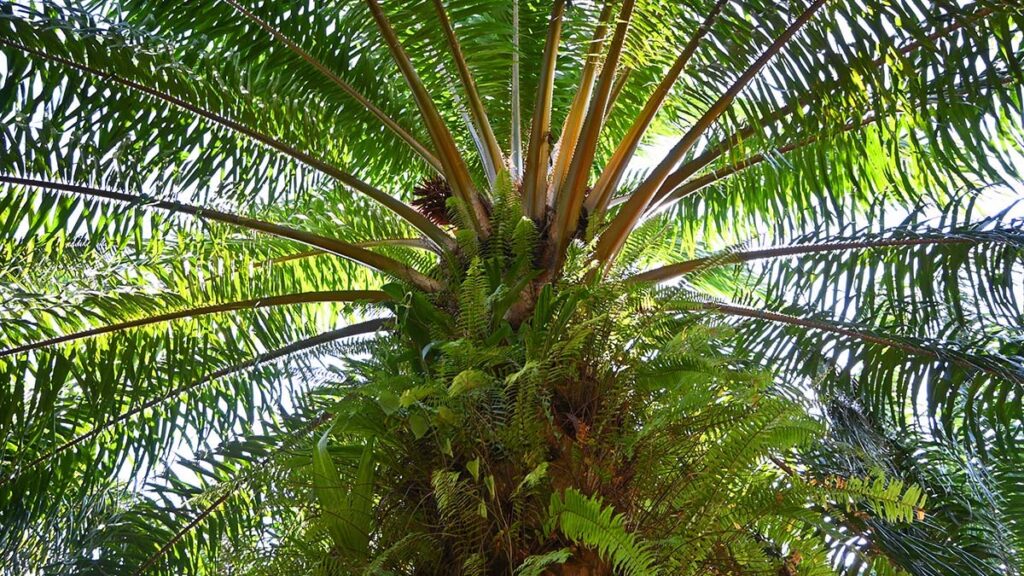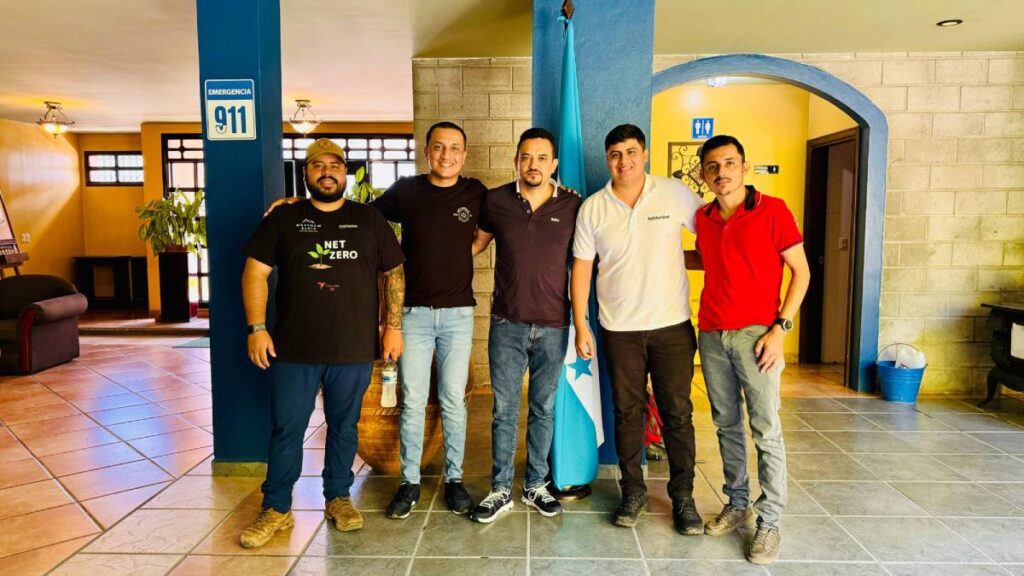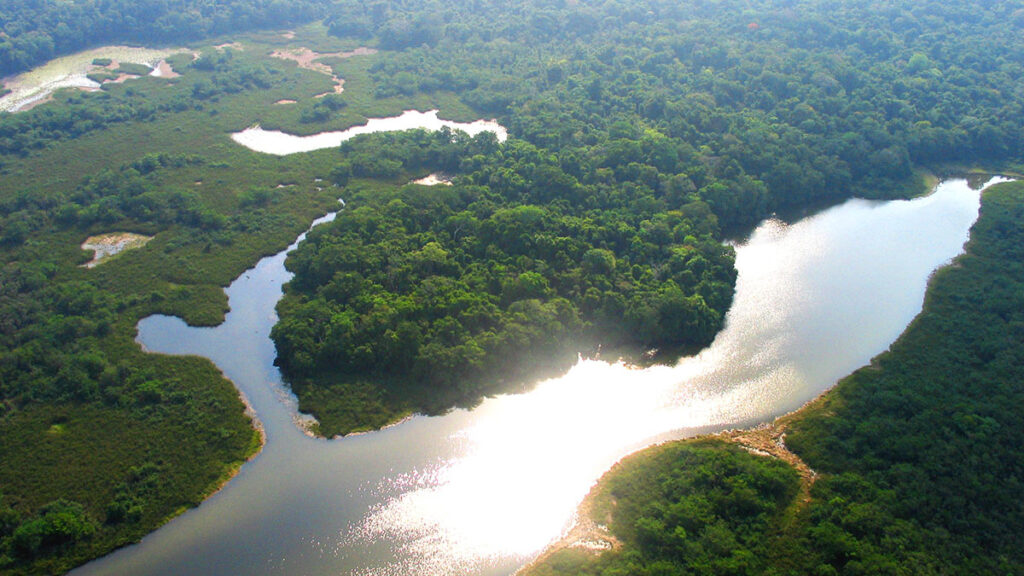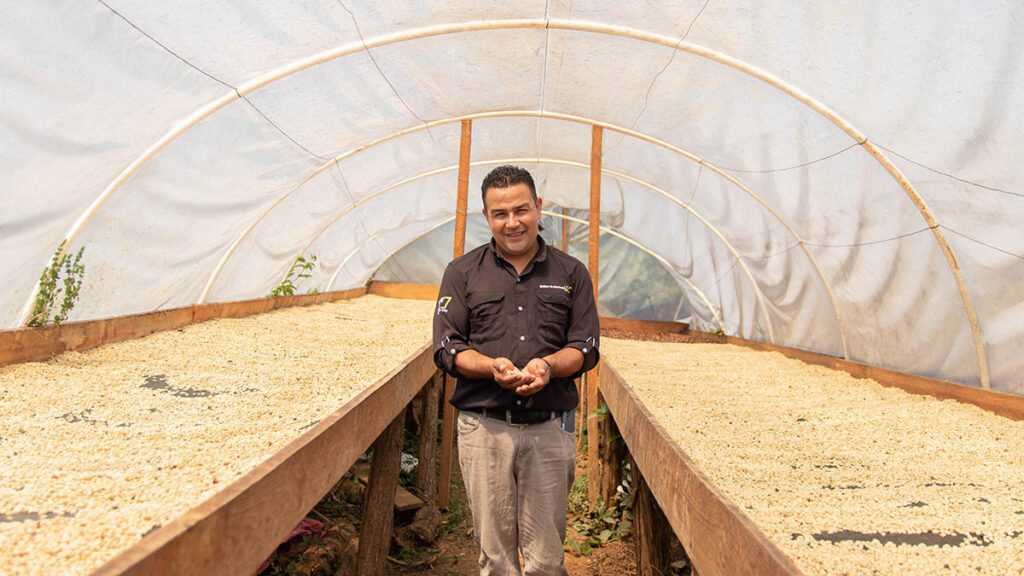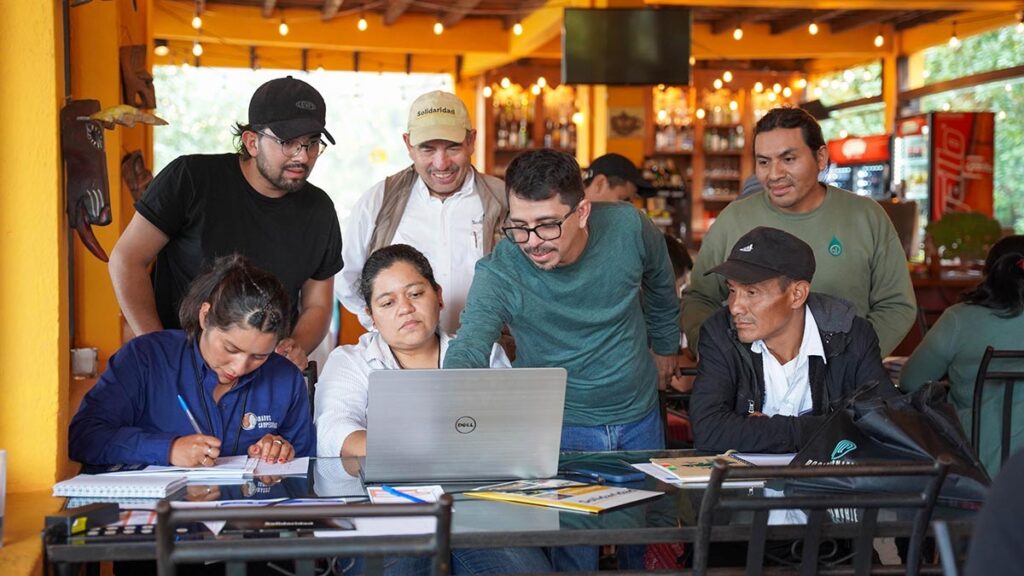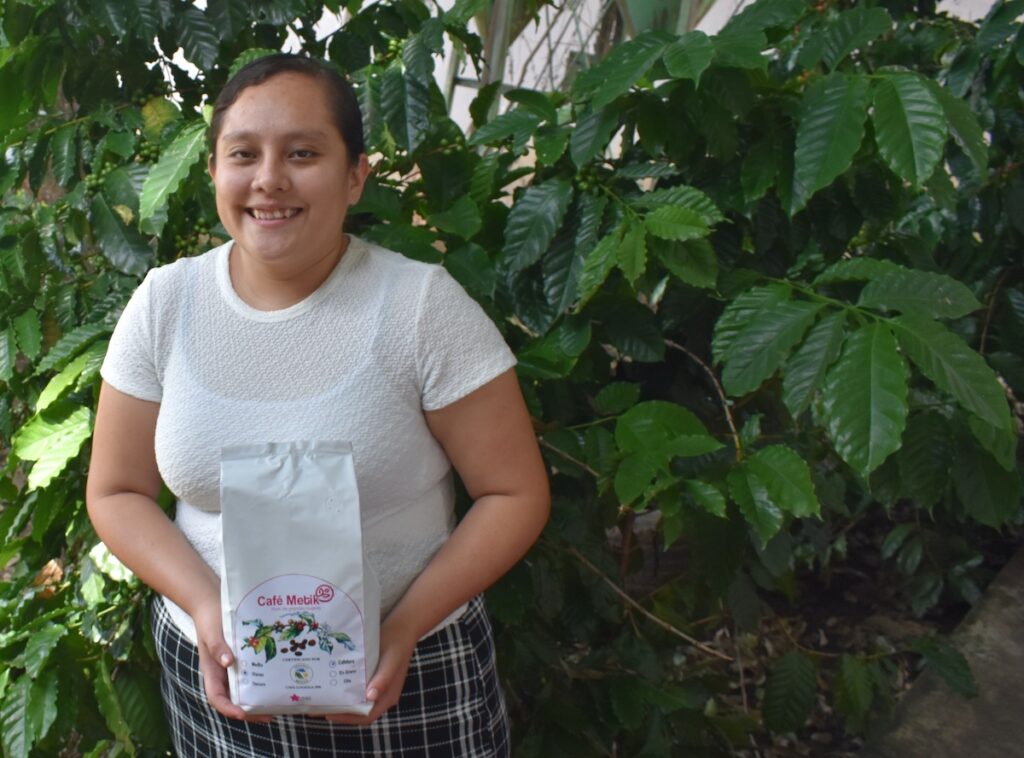Solidaridad is partnering with the Rainforest Alliance, the National Forest Institute (INAB) and other partners to pilot the LandScale tool in one of the most important agricultural areas of Guatemala, the Pacific coast.
LandScale supports mangrove restoration initiative
On May 21, the consortium launched a campaign called “Sembrando Huella” (Sowing Footprint) promoted by INAB. The campaign kicked off with a red mangrove reforestation activity in the 31 de Julio community of Ocós in San Marcos, Guatemala.
“When we see different stakeholders who are all trying to carry out actions … [separately], everything becomes challenging to manage,” said César Zacarías-Coxic, INAB’s mangrove manager.
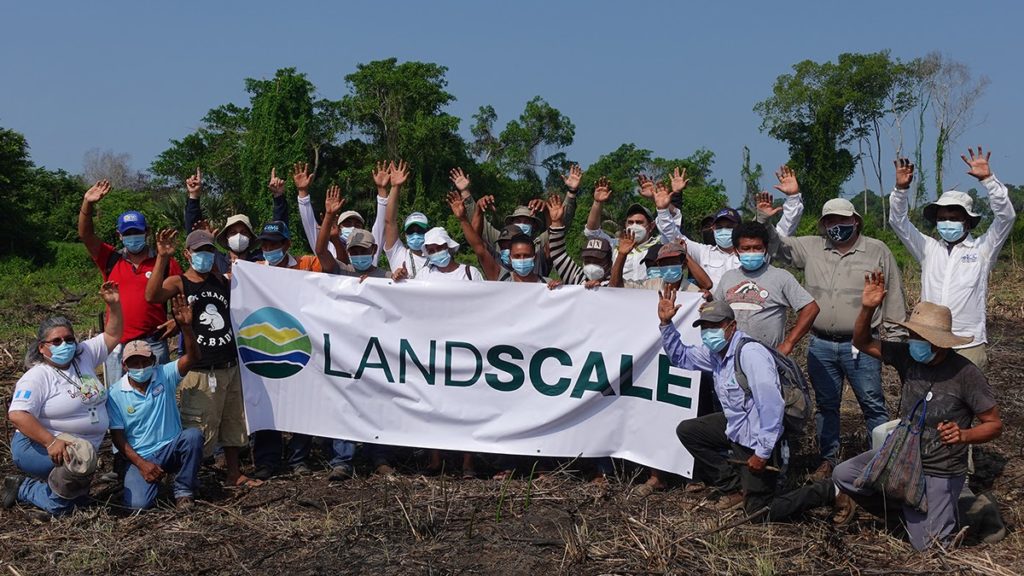
Solidaridad’s previous experience in bringing together multiple stakeholders through dialogue platforms is a valuable resource for the LandScale pilot and INAB campaign.
“At Solidaridad we are interested in getting involved in initiatives in which we pursue common objectives that provide benefits to all stakeholders within a landscape,” said José Luis López, from the Oil Palm and Biodiversity Program for Solidaridad in Guatemala.
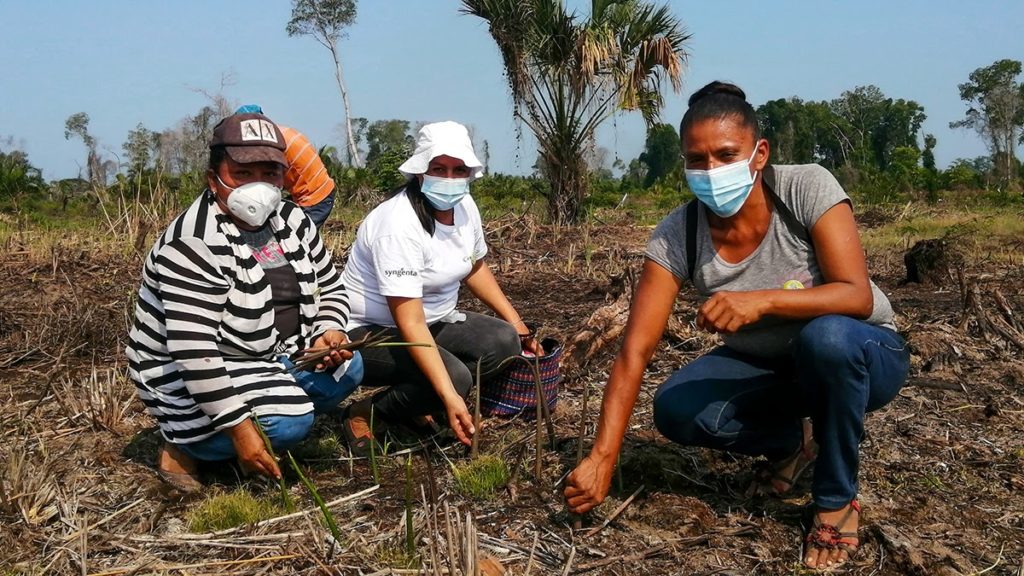
For Silvia Valdéz, INAB’s subregional director in the Coatepeque municipality, the enthusiasm, level of organization and participation of the men and women of the 31 de Julio community is very motivating, since they themselves initially approached INAB to find solutions for a highly-degraded area that had also suffered a forest fire.
“When we manage to bring together all stakeholders, such as the private sector, government institutions and the community, it is much easier to achieve short-term objectives and goals. If we all work together for the same goal, it facilitates the process,” continued César.
Sowing Footprint will bring long-term benefits to the region
LandScale has implemented the pilot project in Guatemala and other landscapes around the world, and complementary initiatives and activities have emerged. For example, in Guatemala the “Salvemos El Manchón” consortium integrates different stakeholders to promote wetland restoration along the South coast. In addition, other experience exchanges are bringing positive results to Guatemala’s Pacific coast.
“We are also interested in participating in activities like this [Sowing Footprint], in which a tangible result will be seen for both the community and the region, bringing long-term benefits,” continued José Luis.
Mangrove restoration promises to bring positive impacts not only for Guatemala, but also for the rest of the Central American region. Mangroves provide important ecological services such as carbon capture (contributing to the reduction of emissions).
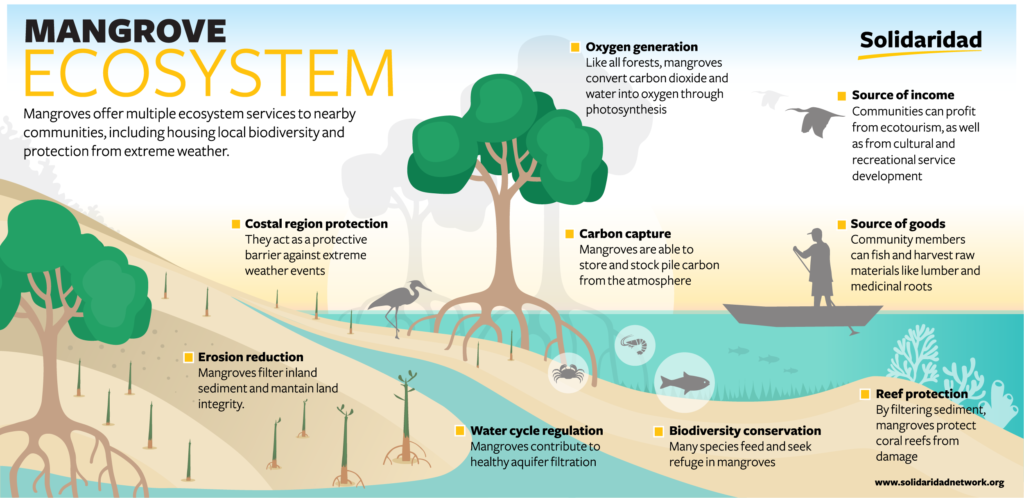
LandScale strategic interventions and goals in 2021-2025
LandScale brings advantages to multiple stakeholders: private sector, public sector, civil society, communities and even internationally. “LandScale engages multiple groups to measure and communicate sustainability progress achieved at the landscape level through initiatives like the mangrove reforestation activity in May,” said José Luis.
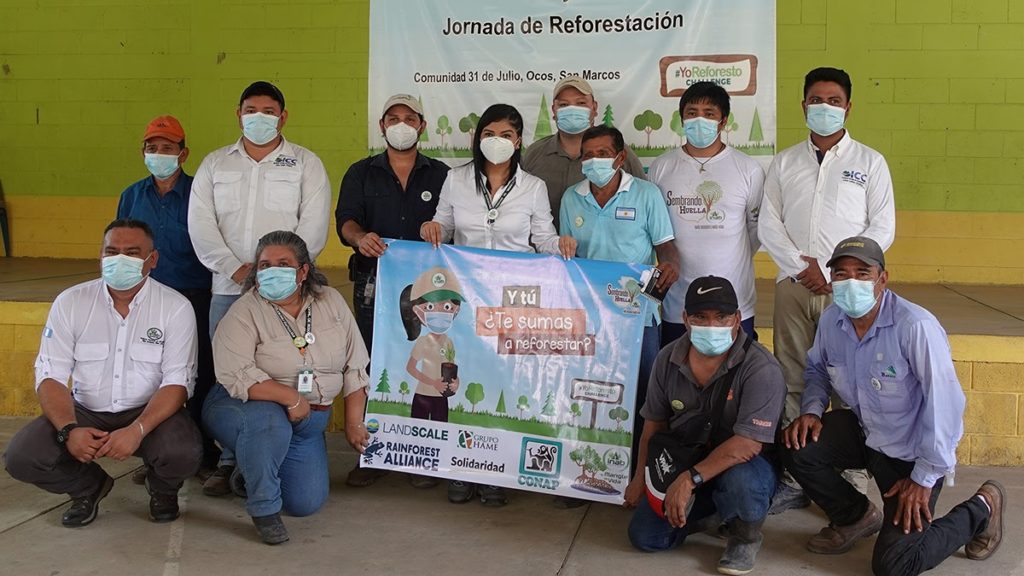
Solidaridad’s pilot in Guatemala will use the LandScale tool to measure the success of an action plan that includes five strategic interventions in the landscape: inter-institutional and intersectoral coordination; improvement to basic health services and drinking water; compensation schemes for environmental services; access to forestry incentives for micro and smallholder producers; and knowledge increase among the population and producers about sustainability and its process.
Starting in 2021, as a result of the strategic interventions, Solidaridad’s pilot project aims to achieve the following:
- Manchón Guamuchal Wetland: 250 hectares (ha) of forest cover gained by reducing natural ecosystem degradation and strengthening conservation efforts.
- Landscape priority areas: 1,300 ha of forest cover gain, contributing eight percent of the forest restoration proposed in the national strategy.
- Landscape population conditions: 50,000 people who will benefit from health systems and potable water in addition to government care.
- Civil society participation: Improve citizen participation in territorial management processes.
- Good practices: 500 new hectares with agricultural, forestry and / or livestock production whose producers implement sustainable practices.
Contact:
José Luis López
Programa Palma de Aceite y Biodiversidad para Solidaridad
joseluis@solidaridadnetwork.org

